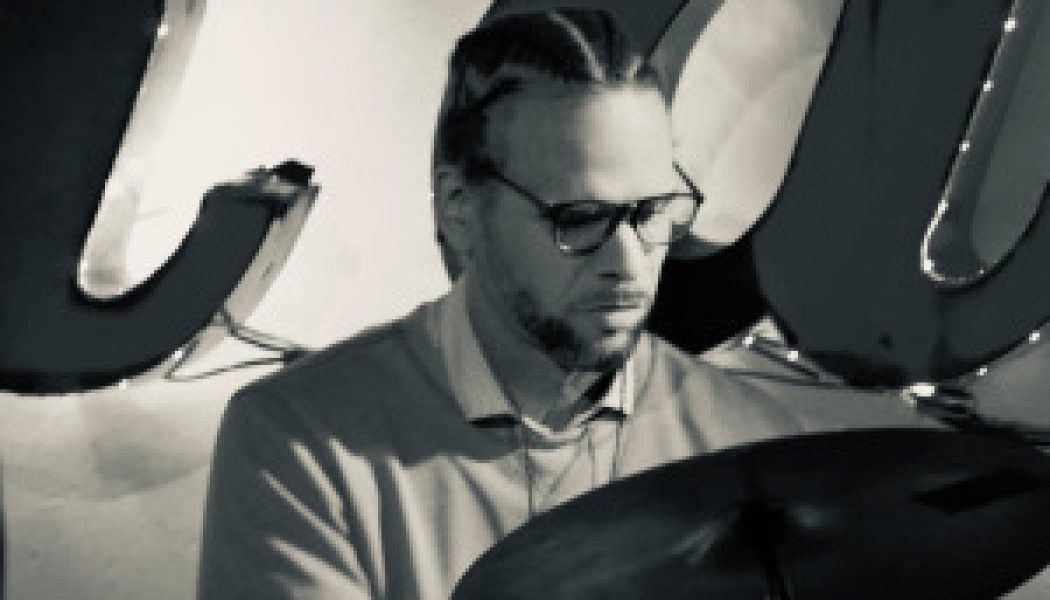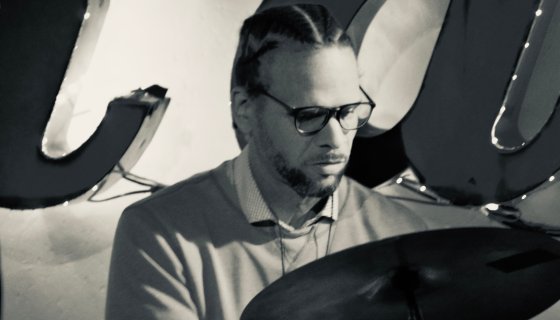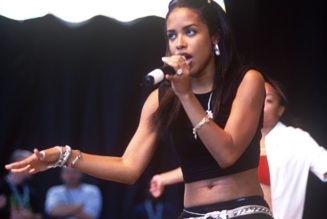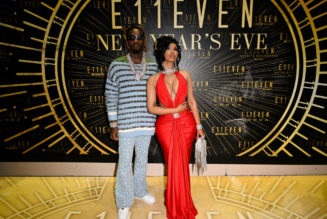
Source: Justin Pounds / JP
In Hip-Hop Wired’s first installment of our interview with Jay “J-Zone” Mumford, we learned that the former rapper and producer came to his earlier profession unexpectedly. Amassing a following during the heights of the Indie Hip-Hop craze of the early 2000s, Mumford became increasingly jaded with the industry before rediscovering his passion for the music that defined his youth.
Zone Defense
As we learned in part one of our talks, Mumford dove into a career as a headlining rapper due to the fact that the inconsistency of artists he hoped to work with had reached its zenith. By some measure, the “road less traveled” approach makes sense in the ultra-competitive realm of independent Hip-Hop but ask any artist who worked at the turn of the century, and they’ll almost universally admit that it was beyond difficult at times.
As J-Zone, Mumford became one of the Indie Rap darlings among the vast sea of artists from Definitive Jux, Rawkus, Duck Down Records, BabyGrande, and a host of other labels during the late 1990s to early 2000s that shifted the entire Hip-Hop ecosystem.
“None of this was planned and I was just flying by the seat of my pants,” Mumford said of his burgeoning career. “I had no idea what I was doing and I did it from like 1999 to like ’05 or ’06, I started to get frustrated. I began to lose the passion for it. Not just from a business standpoint, but also artistically.”
He continued, “I never wanted to be an MC. I just created this outlandish character that was funny and over the top, because it was kind of a joke to me. The music, I took that seriously. The production, the craft of making records, being a professional, but the rapping was just something else. I’m not a tough guy, I’m not Pharoahe Monch, I can’t rhyme like that. What happened was the character overshadowed the artistic side of what I was attempting to do, and I just kind of felt into this novelty bag.”
Mumford’s assessment would be a correct one. By the time he and Tampa, Fla. rapper Celph Titled of the Demigodz created their joint Boss Hog Barbarians album Every Hog Has Its Day, Mumford seemingly leaned face first into this persona and continued to top the zaniness of any preceding recording. But the fire he once kept lit for music all but died in 2009 after turning on his equipment and realizing the moment had passed.
The story of J-Zone didn’t end there but it was most certainly put on pause as Mumford took a day job as a high school instructor, with his students largely unaware of his own travails as an artist as they expressed to him their dreams of becoming Hip-Hop’s next big thing.
“These kids had no idea that some rappers have day jobs or that most tours happen on Greyhound buses and the money isn’t long, and I realized nobody talked about the ugly side of the business,” Mumford said.
In 2011, Mumford decided to catalog his experiences as an underground rapper into his book, Root for the Villain: Rap, Bullsh*t, and a Celebration of Failure. The best part of Mumford’s story arc is that it was still grounded by his sharp sense of humor. And he admitted that publishing the book allowed him to, in his words, “let go of the bitterness” he experienced as his rap career faded.
“The book closed one chapter but I still needed something musically so in between the release of the book and my last rap album, I began to pick up drumming as a hobby,” Mumford explained.
“I was DJ-ing, but that’s not the same as making music so I picked up the drums and it restored that feeling I had when I was a little kid trying to play bass,” he added. “It reminded me of being young again, and that’s what made me excited about music again. And learning an instrument from scratch at 34, 35 was challenging but I had to put the time in.”
In 2016, the final J-Zone album, Fish N’ Grits, was released after some intermittent projects here and there but in that same year, things changed drastically for Mumford that pushed him fully into the musical space he operates within today.
Enter The Du-Rites
Most people in the world would lament no longer being attached to a significant part of their youth and creative experience, but that wasn’t the case for Mumford. In fact, the longer he spoke, it was clear that he was long angling for an opportunity to be free of the limits Hip-Hop placed on him across his entire adulthood.
“I put in eight hours a day and began auditioning for bands, and now I’m a drummer, composer, and musician with my own band now,” Mumford said, mentioning his two-man band The Du-Rites with Pablo Martin. “I feel like now I have more in common with my 10-year-old self than I did when I was in my twenties, it’s all a circular journey. It’s all part of this great story.”
Part of that story involves a bittersweet moment of how Mumford actually received his first drum kit from his father, who at the time was retired and living in Florida. Caring for his ailing grandmother in Queens, Mumford was living in his childhood home while teaching classes at his former college part-time, and his father graciously purchased him the set. With some nudging from his father, Mumford split time between promoting his book and learning the intricacies of the drumming craft.
Between caring for his grandmother, working odd jobs, DJ-ing, and more, Mumford, inspired by the late Clyde Stubblefield, a self-taught drummer, devoted all of his free time to become adept at the mechanics and science of drumming. Adding his skills that he learned from Hip-Hop production, Mumford’s dedication to his new instrument made its way into his latter rap releases but after the passing of his grandmother in 2016, J-Zone the rapper was no more.
Life has an interesting way of placing folks in your path that will transform your entire outlook and oftentimes, they were there the whole time. Pablo Martin, whom Mumford plays alongside with as part of The Du-Rites, was actually known to him initially as a studio engineer. Martin mastered all of Mumford’s J-Zone releases save for Music For Tu Madre. It wasn’t until later that Mumford discovered that Martin himself had an extensive career as a musician, playing guitar for the Tom Tom Club among other endeavors.
Social media, for all of its negative connotations, can sometimes be beneficial. Mumford explained that a Facebook post announcing a potential jam session only got one response, and that came from Martin.
“The first song he and I did together, ‘The Chief & I,’ that’s on our first album was actually recorded in 2013 but we redid because I got better at drumming,” Mumford shared. The “blaxploitation” groove of “The Chief & I” sounds like it was made in a hazy Memphis studio in 1972, not a Queens basement just eight years ago.
With funk music firmly in his wheelhouse, Hip-Hop wasn’t quite done with Mumford but an SXSW showcase in March of 2016 was when he was definitely tossed out with the bathwater.
“I was in this Hip-Hop supergroup and this performance was the worst 15 minutes of my life,” Mumford shared, with just the faintest hint of disgust in his voice.
“I rapped and played the drums that day, and it was the first time I rapped live in a long time but we were basically booed off the stage. I went back to my Airbnb and realized that this was the end for me,” Mumford continued, adding that he not only lost his grandmother, but his relationship at the time ended, and the supergroup imploded within a two to three-week period.
Mumford made mention that some of his J-Zone fans weren’t initially receptive to his revival as a drummer, but those who knew him best understood that this was who he was all along.
“Some people didn’t get it and were like ‘get back to the rapping’ but my boys, they were like this is really you,” Mumford said. “They noticed I had the afro and the funky print shirts and this was like a dream. I got to play on records with Eddie Palmieri and Robert Glasper. I ended up doing drums for Lord Finessse’s Motown State Of Mind album. I was sampled by DangerMouse. When your heart is in it, people can tell and it’s been paying off.”
Our discussion naturally shifted to some of the drummers he’s both influenced by and continues to study.
The aforementioned Clyde Stubblefield was named along with George “Funky” Brown of Kool & The Gang fame, legendary bandleader and sideman Bernard Purdie, Memphis drummer Joe Dukes, jazz drummer Jack DeJohnette, Michigan drummer Elvin Jones, Mitch Mitchell, who drummed for Jimi Hendrix, New Orleans jazz and funk drummer James Black, Joseph “Ziggy” Modeliste of The Meters fame, Mike Clark, and Mumford named B.T. Express drummer Leslie Ming as a mentor of his.
Mumford’s journey is far from over, even as a man now in his early 40s. Already several projects deep with Martin and creating a collection of breakbeats and drum kits for producers, in some ways Mumford is still connected to the music that put his name on the map yet this time, he’s doing it through a channel that is authentic to his current musical pursuits.
“One of my biggest quirks as an artist is I can’t live in the past,” Mumford says. “I’m already looking ahead and I don’t want to keep reliving my past days. I think my grandmother dying in 2016 was the push I needed and I can even sometimes feel her with me saying ‘go handle your business.’”
His drums have been used by some of his contemporaries such as The Alchemist, and Madlib used a portion of his drums for the track “Road Of The Lonely Ones” from the Oxnard, Calif. producer’s latest album, Sound Ancestors. In closing, we asked Mumford how does it feel to see some of his peers continue on and even pull from his music to aid their own compositions.
“It’s been a blessing, this journey I took. I’ve had that fire, and I been burned out. I know what it’s like to be burned out, so now, I do whatever I can to protect my passion and never end up where I was again,” Mumford shared.
“I’m going to have my ups and downs but why do something if you’re not passionate? And to see my peers like Madlib use my drums for his music, [it] made me incredibly happy to contribute to Hip-Hop while not really having to be a part of it. Don’t get it twisted, I still love Hip-Hop as a fan, but I don’t enjoy being a Hip-Hop artist myself,” Mumford concluded with a knowing laugh.
To learn more about Jay Mumford, The Du-Rites, and all things related within, check out Mumford’s website here.
—
Photo: Justin Pounds
HipHopWired Radio
Our staff has picked their favorite stations, take a listen…











